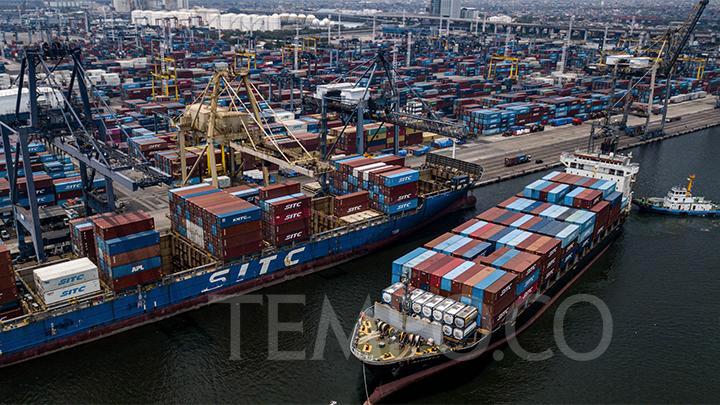February 6, 2025 | 06:29 pm

TEMPO.CO, Jakarta - The Institute for Economic and Social Research (LPEM) at the Faculty of Economics and Business (FEB) at the University of Indonesia (UI) lamented that the decline in Indonesia's poverty rate has not been accompanied by improved equality.
LPEM FEB UI researcher, Muhammad Hanri, emphasized that inequality remains a serious issue in the country. "Although the trend of poverty reduction continues, the unequal distribution of income remains a serious problem that needs attention," Hanri stated in the LPEM FEB UI "Labor Market Brief" report published on February 3, 2025.
He explained that the percentage of Indonesians living in poverty is 8.57 percent, or approximately 24.06 million people, based on data from the Central Statistics Agency (BPS) as of September 2024. This represents a decrease from 25.22 million people in March 2024 and 25.9 million people in March 2023.
However, he pointed out that inequality indicators in Indonesia have actually worsened. He used the Gini Ratio from the BPS to measure income inequality.
On the Gini Ratio scale, 0.0 represents perfect equality, while 1 indicates complete inequality. A value closer to 1 means a higher level of income inequality within a region.
Indonesia's Gini Ratio was 0.381 in September 2024. This is a slight increase of 0.002 points compared to 0.379 in March 2024, although it remains lower than the 0.388 recorded in March 2023.
According to Hanri, several regions in Indonesia show high levels of inequality. These include Jakarta (0.431), West Java and Yogyakarta (0.428), South Papua (0.424), and Gorontalo (0.413).
"This condition indicates that the economic growth in these regions is not evenly distributed, with the majority of income concentrated in certain groups of society," Hanri explained.
He suggested that this disparity could be caused by the dominance of certain sectors within the economy. "For example, plantations and mining, where the economic benefits are more enjoyed by large companies than local workers," Hanri concluded.
Editor’s Choice: BPS: Indonesia's 2024 Economic Growth at 5.03 Percent, Slight Slowdown
Click here to get the latest news updates from Tempo on Google News
Citilink Launches Jakarta-Way Kanan Route to Boost Local Economy
55 menit lalu

The presence of Citilink is expected to facilitate umrah and hajj pilgrimage as well as tourists travel.
BPS: Indonesia's 2024 Economic Growth at 5.03 Percent, Slight Slowdown
8 jam lalu

The Central Statistics Agency (BPS) noted that all business sectors experienced positive growth throughout 2024.
Exports Value Affects Economic Growth Slowdown in 2024, Says BPS
23 jam lalu

Lower export value is mentioned as the cause of lower economic growth in 2024 compared to the previous year
Free Nutritious Meal is Govt's Effort to Resolve Poverty: Deputy Minister
1 hari lalu

Social Affairs Deputy Minister Agus Jabo Priyono said the free nutritious meal (MBG) program is one of the government's efforts to resolve Poverty.
Minister Zulhas: Food Aid Paused During Harvest Season
1 hari lalu

Coordinating Minister for Food Affairs Zulhas assured that social assistance programs will continue despite government budget adjustments.
Domestic Travel of Indonesian Tourists Reaches 1.02 Billion in 2024
2 hari lalu

Statistics Indonesia (BPS) logs the highest figures for domestic tourists travel in six years.
BPS Projects Rice Production Growth for Early 2025
3 hari lalu

BPS reported that rice production throughout 2024 declined 1.54 percent from the previous year.
Poor Citizens Urged to Work in Free Nutritious Meal Kitchens, Minister Says
6 hari lalu

Poor people can work in delivery, shopping, and food distribution in the Free Nutritious Meal program.
Prabowo Learns Poverty Alleviation Strategy from Indian Prime Minister
11 hari lalu

Indonesian President Prabowo Subianto said that he learned a lot from Indian Prime Minister Narendra Modi about poverty alleviation in India.
Mari Elka Pangestu: The 8 Percent Growth Target Is Hard to Achieve Without Increased Investments
12 hari lalu

Deputy Chair of the National Economic Council Mari Elka Pangestu explains Prabowo's economic policies and the 8 percent economic growth target.

 2 hours ago
7
2 hours ago
7













































